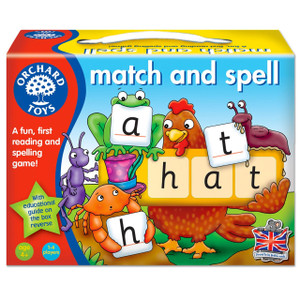Literacy & ABCs: Unlocking the Power of Educational Toys for Young Minds
Early childhood development is a crucial phase in every child's life, and one of the most significant aspects of this development is literacy education. Introducing literacy skills at a young age can set the stage for a lifetime of learning and success.
Learning the Alphabet: Building Blocks for a Bright Future
Alphabet toys play a vital role in helping kids learn letter recognition and pronunciation. These toys come in various forms, such as puzzles, flashcards, and electronic devices, and are designed to engage and stimulate children's curiosity and creativity. By integrating these toys into everyday playtime, parents and caregivers can help their little ones develop essential literacy skills, including:
-
Improved reading comprehension: As children become familiar with the alphabet, they develop the foundation necessary for reading comprehension. These toys can aid in teaching letter-sound relationships, which are critical for understanding and decoding words.
-
Critical thinking and problem-solving abilities: Learning the alphabet requires children to recognize patterns and make connections between letters and sounds. These toys can help develop these cognitive skills by encouraging children to think critically and solve problems related to letter recognition and formation.
Engaging Young Minds: Making Learning Fun and Interactive
One of the key benefits of ABCs educational toys is their ability to engage and stimulate children's curiosity and creativity. These toys often feature bright colours, interesting textures, and interactive elements that capture children's attention and keep them entertained while learning.
For example, alphabet puzzles with raised letters can help young learners develop fine motor skills as they manipulate the pieces, while electronic devices that play songs or games can make learning the alphabet feel more like playtime than a chore.
Choosing the Right Educational Toys: Tips for Parents and Caregivers
When selecting educational toys for your child, consider the following tips to ensure you're making the best choice:
-
Age-appropriateness: Look for toys that are designed for your child's age group, as they will be tailored to their developmental stage and abilities.
-
Quality and safety: Choose well-made toys from reputable brands that use non-toxic materials and meet safety standards.
-
Appeal to your child's interests: Select toys that feature characters or themes your child enjoys, as this will increase their engagement and motivation to learn.
-
Variety: Provide a range of toys to keep learning fresh and exciting. This can include puzzles, flashcards, electronic devices, and more.
Incorporating Alphabet Toys into Your Child's Learning Routine
To get the most out of the alphabet toys, try incorporating them into your child's daily routines and activities. Some ideas include:
-
Storytime: Use alphabet books or flashcards to reinforce letter recognition and sounds while reading together.
-
Creative play: Encourage your child to create stories or drawings that incorporate the letters of the alphabet.
-
Games: Play fun and educational games with your child that involve letter recognition, such as memory matching or letter scavenger hunts.
By selecting high-quality, age-appropriate toys and incorporating them effectively into your child's learning routine, you can help lay the foundation for a lifetime of educational success. So, invest in these resources and watch your child's literacy skills flourish!
